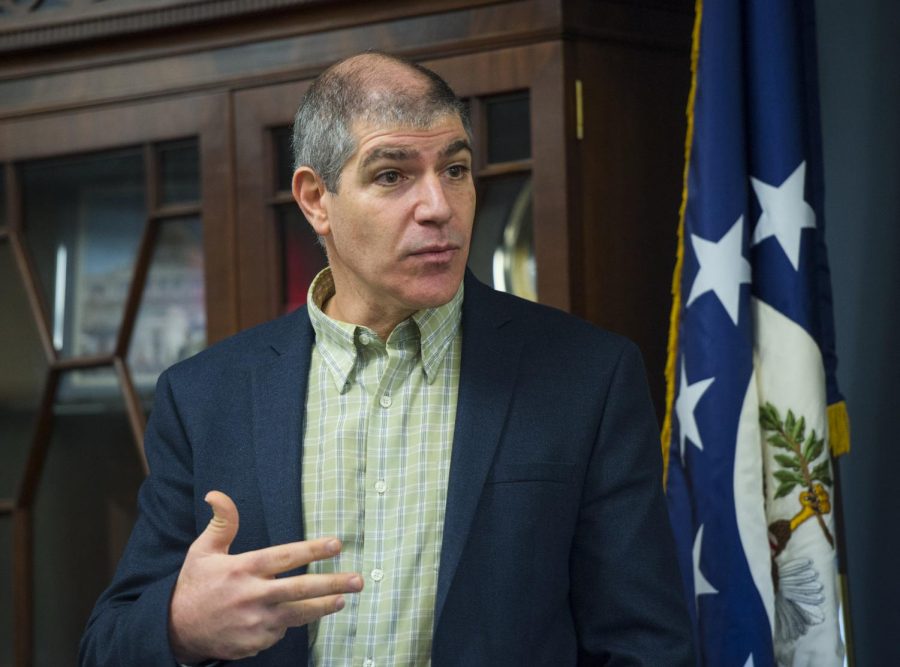Current immigration issues tied to previous policies
DACA is a ‘long-term policy failure,’ University of Oregon speaker says
MICHAEL LINDER | The Daily Evergreen
Dan Tiechnor, Professor of Social Science at the University of Oregon discuess the dynamics of American immigration reform and the orgins of current policy breakdowns at Coffee and Politics Tuesday afternoon in Bryan Hall.
November 15, 2017
American business owners have always liked the idea of cheap, affordable labor, according to an immigration expert who spoke in Bryan Hall on Tuesday.
WSU hosted Daniel Tichenor, a senior faculty fellow at Wayne Morse Center for Law and Politics at the University of Oregon, to discuss the continuing issues regarding the history of immigration and Deferred Action for Childhood Arrivals.
In 1986, Congress approved the Immigration Reform and Control Act, which was passed in order to control and discourage illegal immigration to the U.S.
This act ordered the legalization of undocumented immigrants who had lived in the U.S. since 1982. The act increased border control and allowed agricultural workers, mainly from Mexico, to reside and work legally in the U.S.
Following the act, unauthorized flows of immigration and enhanced border control had unintended consequences, Tichenor said.
Prior to IRCA, the undocumented population could travel back and forth freely between work and home, he said. As border control increased, the newly imposed cost of traveling back disincentived leaving the U.S. for many migrant workers, causing a steady increase in the country’s undocumented population.
Since then, there has been fierce debate and no action on immigration reform, Tichenor said. There are roughly 11 million undocumented immigrants in the U.S., according to the Pew Research Center.
“Both parties are dramatically polarized on the issue,” Tichenor said.
President Obama signed DACA in June of 2012 to allow individuals who entered the country as minors a renewable two-year period of deferred action from deportation and make them eligible for work permits.
Reflecting on her Northern European ancestors, Jenna Caneva, a student at WSU, said she wishes it were easier it find a positive solution to immigration reform. Caneva said it is unfair that people who aren’t born in the U.S. can’t get citizenship, considering the fact that America was first home to Native Americans and was built from many nationalities and cultures.
“It is disheartening to hear that a lot of people are going to be affected by [DACA],” she said, “since America was built off of immigrants.”
Tichenor refers to DACA as a “long-term policy failure,” but “a vulnerable temporary movement victory.” The program underscores the challenges that lay ahead for immigration reformation, he said.
When asked about legalization, Tichenor said he believes the best form the U.S. has had was in 1986. If someone arrived in America before a certain date, is able to pass a background check and is willing to participate in the economy, he said, then they should be able to stay.









